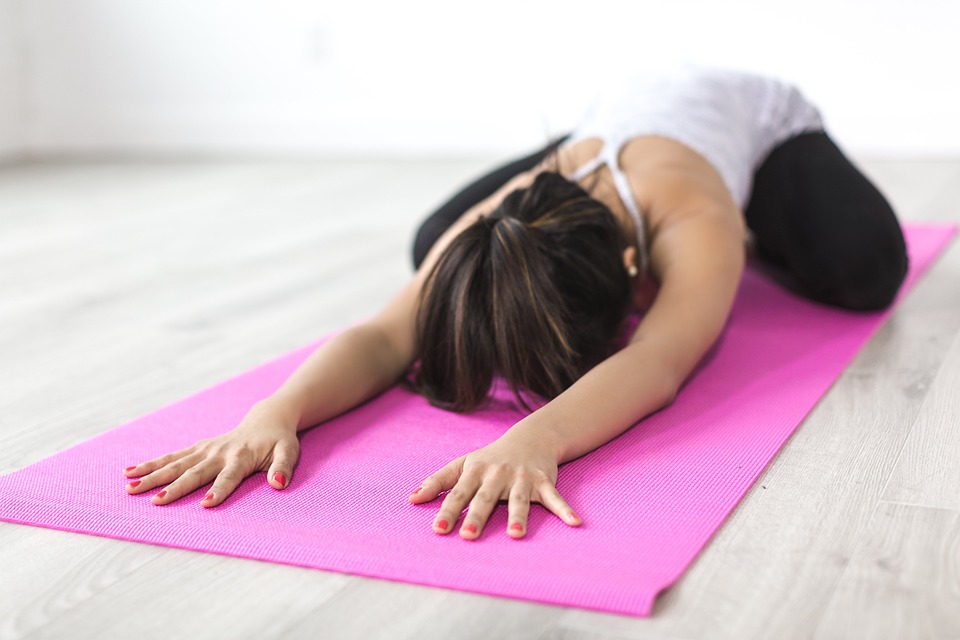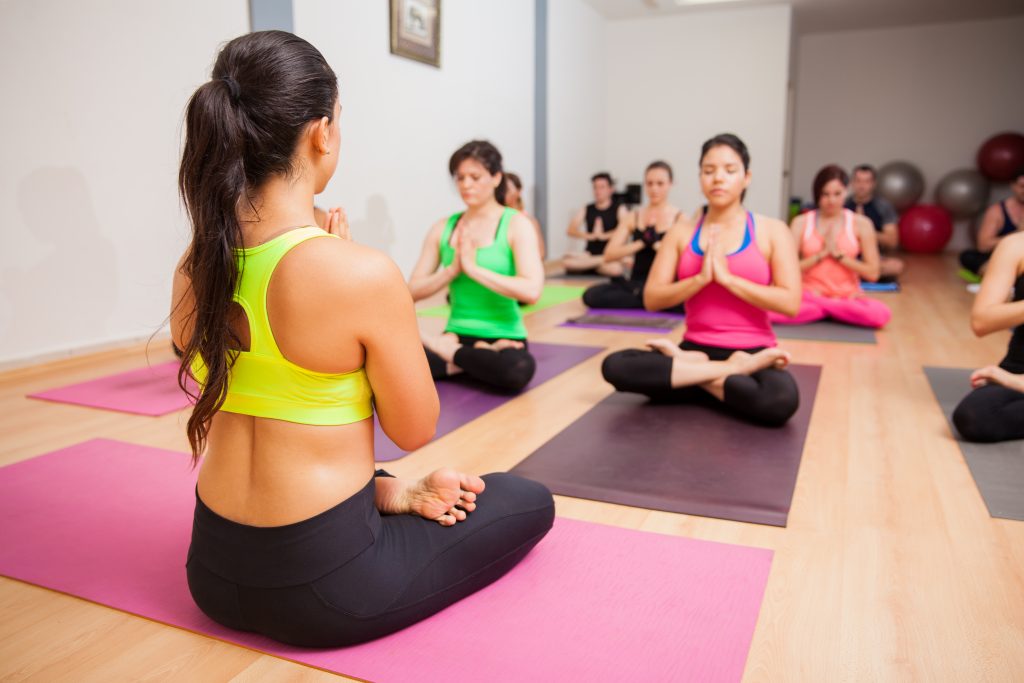Since yoga has been found to help those with diseases and illnesses like Alzheimer’s and Arthritis, it’s a given that it can help ease mental health issues and disorders. A recent review on the health benefits of yoga, published in Frontiers in Psychiatry, with help from researchers at Duke University School of Medicine, found that yoga could be a promising treatment for some mental illnesses.
Specifically, they found that yoga was effective at relieving the symptoms of mild clinical depression and sleep deprivation even when people were not taking antidepressant medications. Sleep deprivation can be a huge factor in overall well being and can seriously affect day to day cognitive function, so having studies showing that yoga helped people sleep better and for longer, is a huge deal.
Further studies show that yoga causes chemical changes in the body similar to antidepressants and psychotherapy—such as reduced inflammation and improved neurotransmitters.

An open and flexible mind energizes and prepares one for change. Some believe that visualization helps in the transformation of thoughts to a new life of hope and success. By visualizing mental pictures of success, one can take measures toward converting dreams into reality.
Some believe the best time for visualization is in the morning. Closing the eyes and doing 5 to 10 minutes of your favorite yoga postures provides an opportunity to find inspiration and self-motivation as one imagines how to go about changing life.
The science of how yoga empowers the mind and emotions is so tangible that there is a new and burgeoning field called “yoga therapy” where certain practitioners (including psychiatrists, psychologists, and social workers) incorporate yoga poses and meditative breathing into their sessions, and yoga teachers who want to learn how to address the emotions that bubble up in students during class or in private sessions. The idea, say yoga therapists, is to allow yoga to empower people while priming them to access their deepest emotions.
Recently, Time Magazine reported that since the days of Freud, research into the mind-body relationship has come a long way. Studies show that not only are your mental health and mood dependent in a large part on physical factors like exercise, but also unchecked stress, anxiety, and depression can affect physical health, increasing blood pressure, heart disease, and even risk of death. So it was perhaps inevitable that patients would start bringing their yoga mats into therapy.
Emotional balance means to be free of all the neurotic behavior that results from the existence of a tortured and traumatized ego. This is very hard to achieve fully, but meditation certainly is the way to cure such neurosis and unhealthy emotional states. As one’s consciousness is cleansed of emotionally soaked memories, not only does great freedom abound, but also great balance. As one’s responses then are not colored by the burdens one carries, but are instead true, direct, and appropriate.
What you can expect from yoga
Yoga boosts mental and emotional strength even as it simultaneously provides proper toning to the body. Joints become stiff with age and also due to a stagnant lifestyle –- and so does the mind! Yoga exercises provide flexibility to all body parts and the mobilization exercises help in making the body active so as to undertake a variety of daily chores with greater functionality.

Yoga cultivates focus and concentration and reduces stress by making you less reactive. It especially opens the spine, the hips, and the shoulders, where all stress hides and strengthens the many systems of the body, like the circulatory system, the immune system, and the endocrine system. Yoga calms the mind, steadies emotions and opens the heart to feeling more vibrantly alive, giving you a sense of empowerment. It makes you feel more comfortable in your body.
When you feel better in your body, you feel better about yourself and act better towards others. That’s the goal… in the midst of a horrible or stressful day, yoga provides a reprieve from ringing phones, screaming managers, testy kids, and all of the intrusions upon your day or your workout. Yoga restores calmness, balances the emotions, and nourishes your internal body.
Kristy Manuel is a YogaFit Senior Master Trainer and Director of the YogaFit Therapy Program. She is an experienced yoga teacher, certified fitness trainer and wellness specialist with over 25 years experience in the fitness industry.
Sources:
Duke University
Frontiers in Psychiatry

